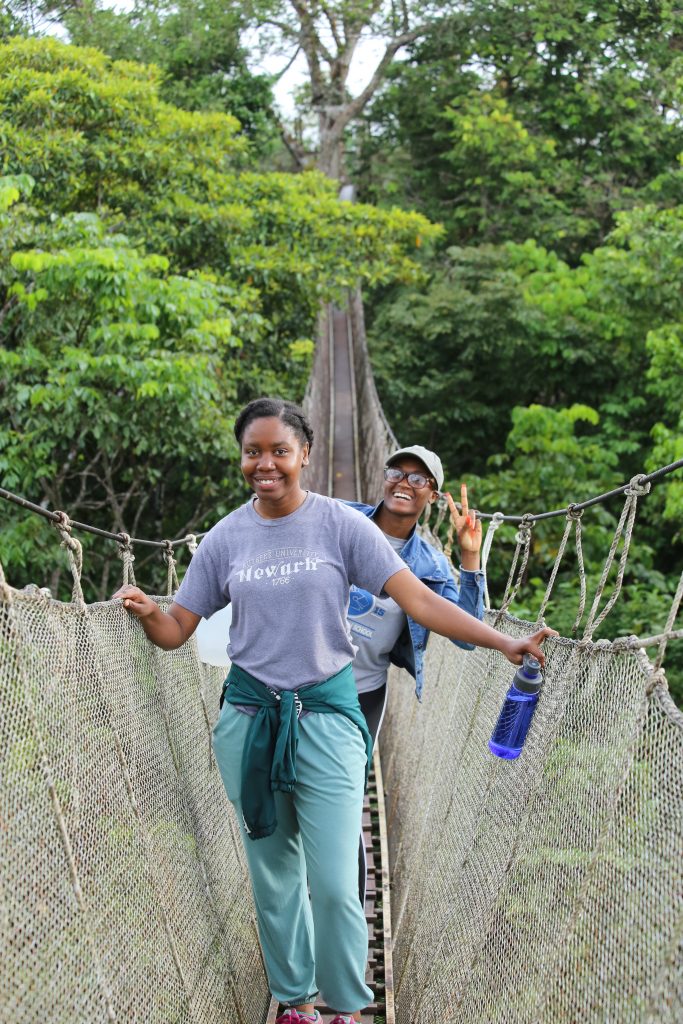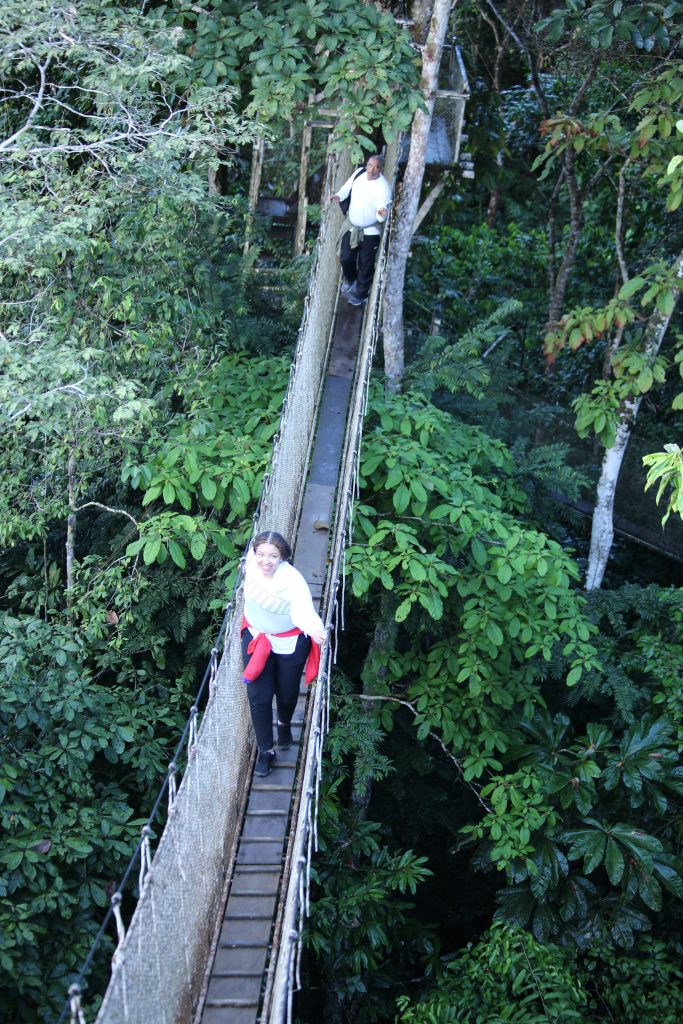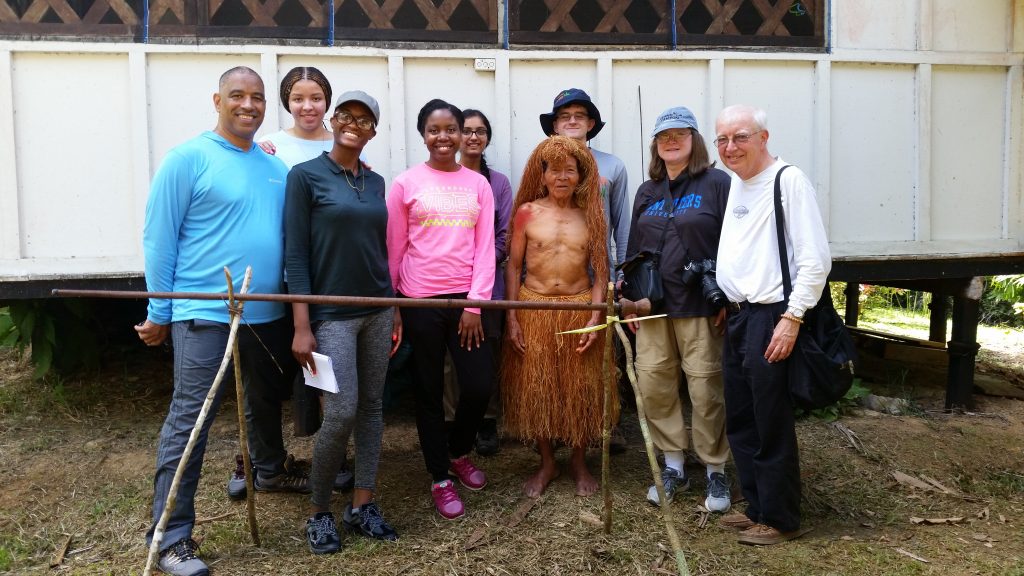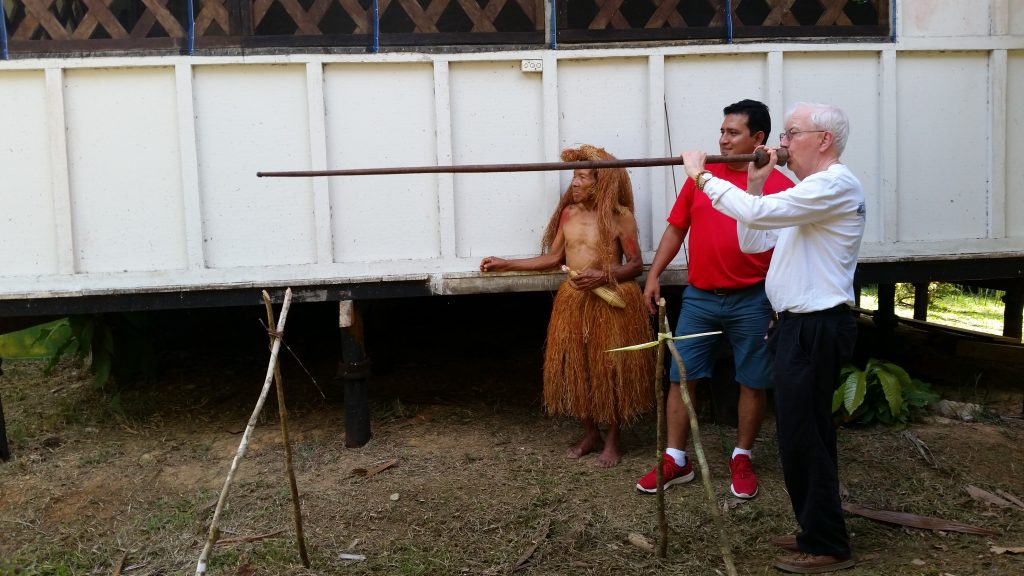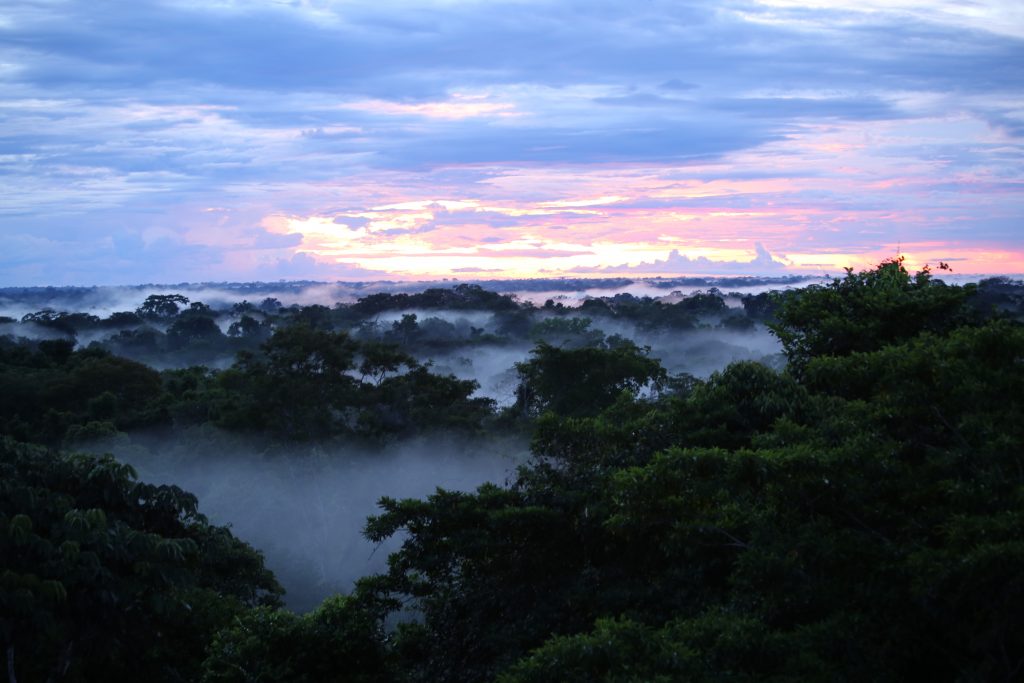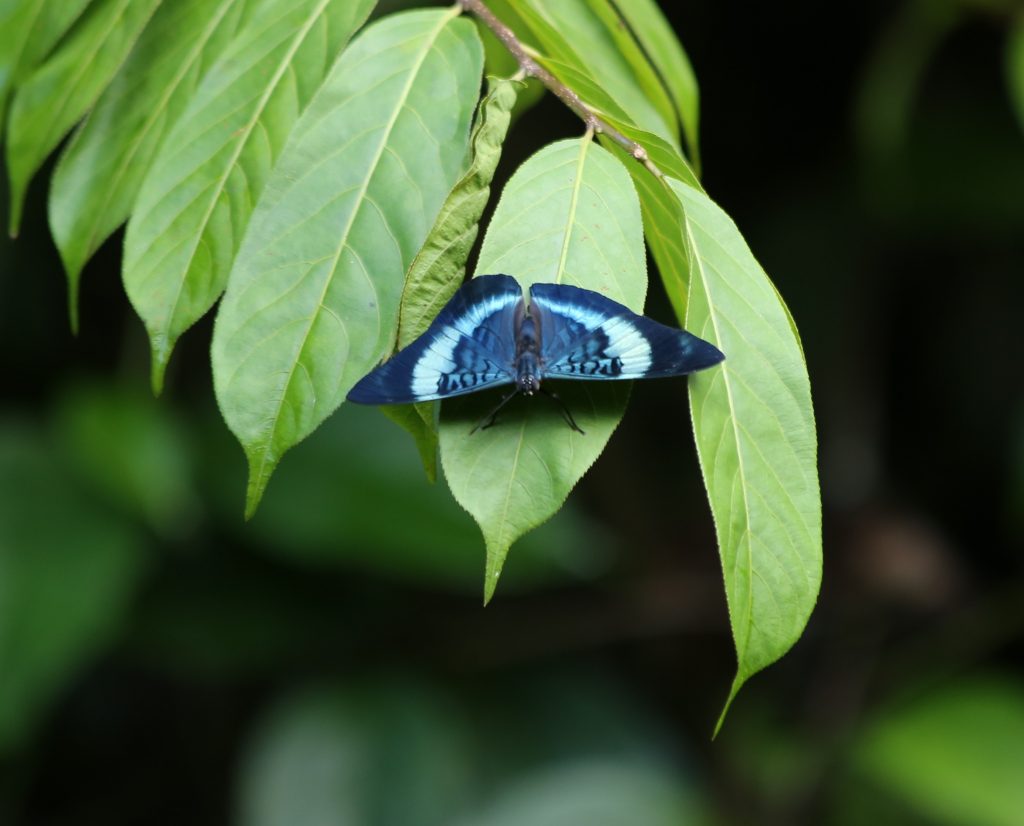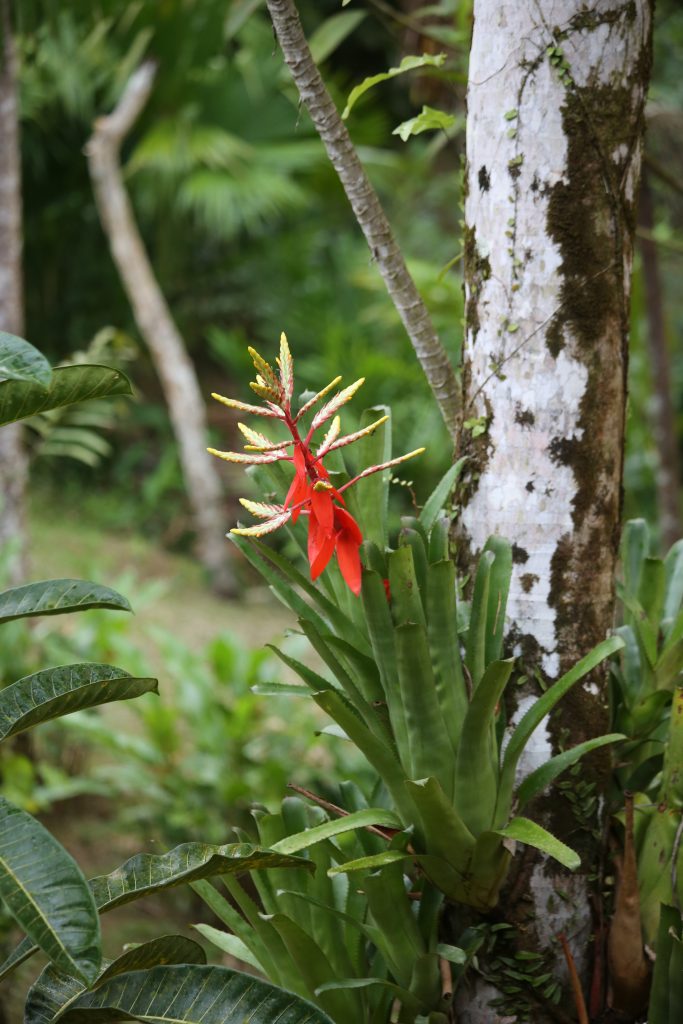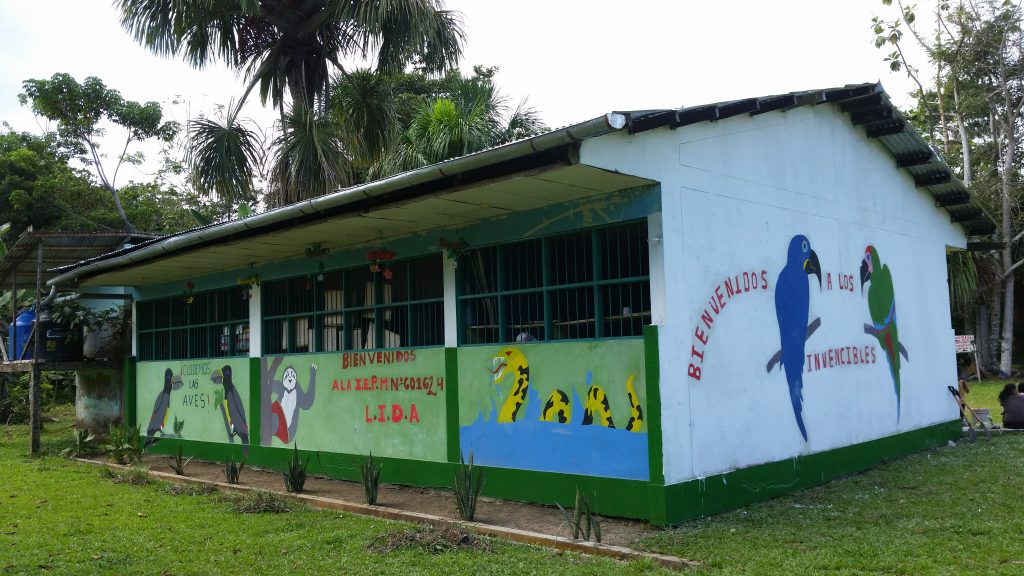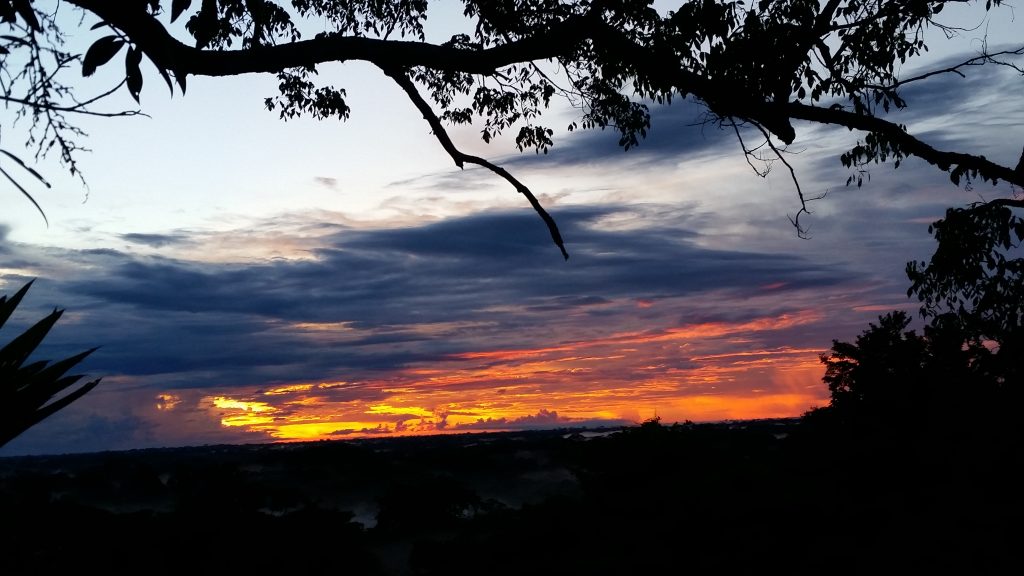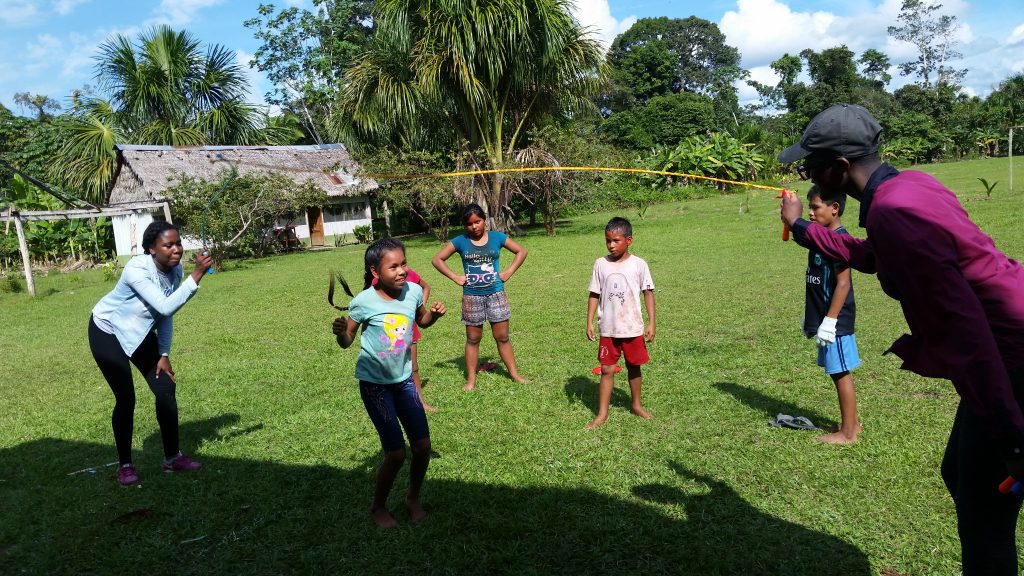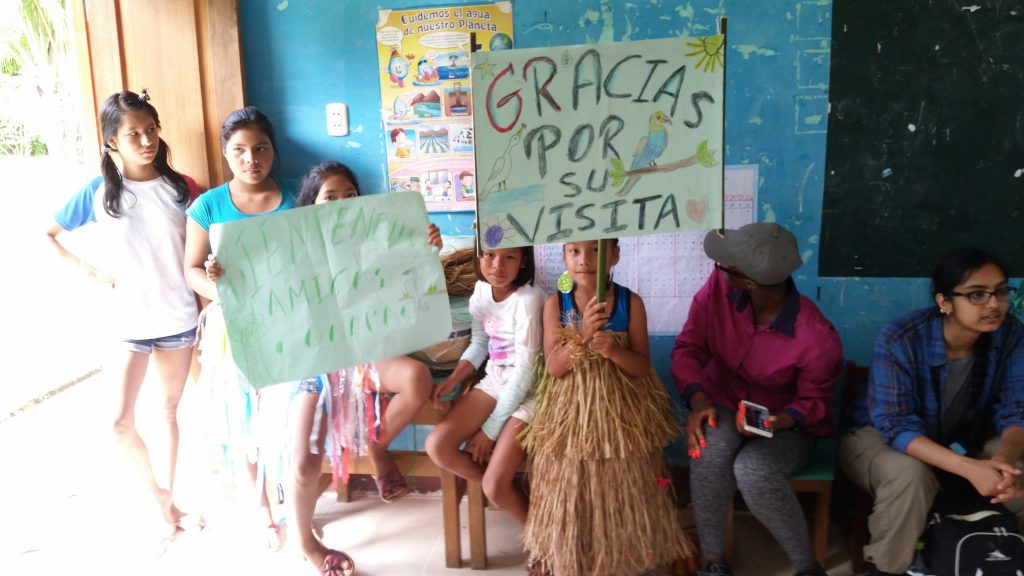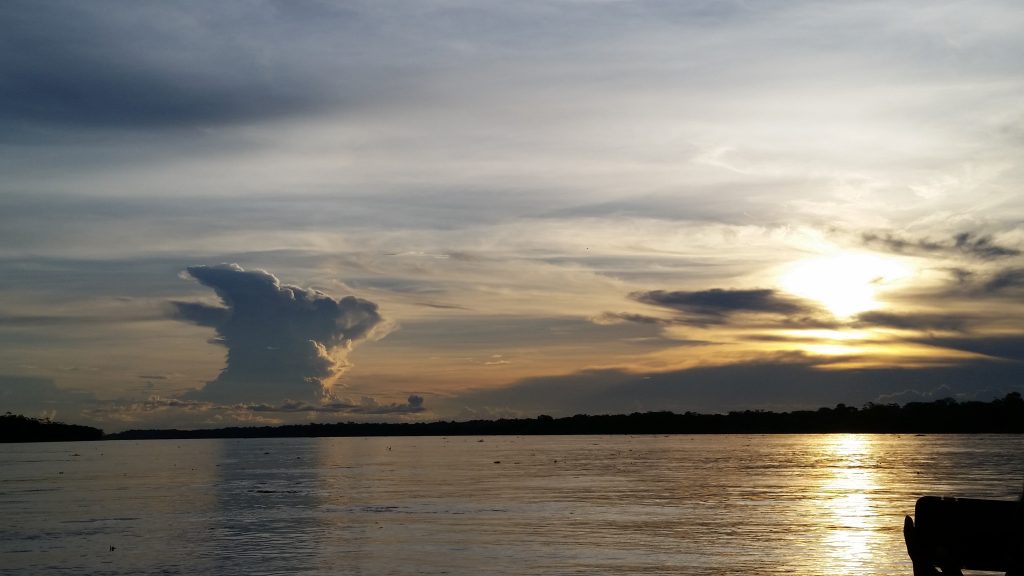By Kathy Wydner, Ph.D., associate professor of biology
This summer an intrepid group from Saint Peter’s University returned to the Amazon rainforest of Peru, to retrace a route and itinerary that was traveled by a Saint Peter’s group in 2017.
I led the experiential learning workshop titled Amazon Rainforest Travel. The group was comprised of five undergraduate students as well as alumnus Bill Armbruster ’71 and a parent of one of the travelers. The undergraduate students included three biology majors from Saint Peters, a biology major from The College of New Jersey and an ecology and evolutionary biology major from Princeton University.
We flew into Iquitos, Peru in the Loreto Region of the country. Iquitos is a major port on the Amazon River that was founded by Jesuits in the mid 1700s. It is the sixth largest city in Peru and has the distinction of being the largest city in the world that can be reached only by boat or plane as it is encircled by waterways. In fact, at Iquitos, the Amazon River is 100 feet deep and two miles wide, and large ocean-going ships sail there all the way from the Atlantic Ocean and Brazil. The group lived close to nature in Amazon Explorama Lodges in Iquitos without air conditioning, hot water and TV for about a week, with very limited access to the internet. Every morning we set out in small boats for birding and wildlife watching. Virtually every evening we went for a night boat ride along narrow waterways to search for nocturnal creatures as well as sleeping birds and butterflies.
The Amazon is one of the most biodiverse ecosystems on Earth; for example, the group saw and photographed a total of 120 different species of birds. The variety of vegetation is also remarkable and many trees have symbioses with ants and even fungi. The rainforest generates so much oxygen that it is sometimes called the “lungs of the planet” and it also creates its own weather. The rainforest stores vast amounts of carbon and helps slow climate change.
As in the 2017 Amazon trip, one of this trip’s highlights was a day assisting with research on the Amazon’s pink river dolphins. The group worked with Marie Trone, P.h.D., professor of biology at Valencia College in Florida, who spends her summers researching the sounds and other behaviors of the pink dolphins. The group accompanied Dr. Trone on a boat trip to investigate a rumor that the dolphins were cooperating with local fishermen. This investigative mission took the group to a remote fishing village that Dr. Trone had never visited before.
While staying at the Explorama Lodges, we had the opportunity to meet indigenous peoples such as the Yagua. Our students learned about their customs and were able to practice some of the local arts such as shooting a blow gun and making thatch, baskets and pots from local materials. We also visited a Maijuna-Kichwa village and learned about their tribal history and their project of raising “stingless bees.” In addition, the group learned about traditional medicines from a local shaman and listened to him as he recounted legends of the rainforest.
We also participated in a day of service at a small village called “Les Invencibles des Amazonas” (LIDA). We painted a school, distributed gifts and played with the elementary school-aged children and participated in a local holiday event called the Festival of San Juan.
Near the end of the trip, the group stayed for a night at the Amazon Conservatory for Tropical Studies (ACTS), and then kayaked back to their previous lodge on the Sucasari River. While at ACTS, we were able to ascend to a rainforest canopy walkway to see the sunset over the rainforest and observe birds and other wildlife. Another magical experience was observing bioluminescent fungi glowing in the dark!
The last night in Peruwas spent at the Ceiba Tops resort, which allowed everyone to readjust to the comforts of civilization such as air conditioning and hot showers. Before flying home, we visited Monkey Island, a rescue center for various species of monkeys, and the Manatee Rescue Center in Iquitos. All in all, this was an amazing adventure and educational experience that the participants will never forget.
Interested in learning more about studying abroad? Contact Scott Keller, director of the Center for Global Learning, at skeller1@saintpeters.edu or (201) 761-6028. Visit saintpeters.edu/global-learning/students for more information.

